jardiance EMPAGLIFLOZIN
Introduction to Jardiance
Jardiance, known by its generic name Empagliflozin, is a medication primarily used to manage type 2 diabetes. It also plays a crucial role in reducing the risk of cardiovascular events, such as heart attacks and strokes, in adults with both diabetes and heart disease. Additionally, Jardiance helps lower the risk of hospitalization for heart failure in certain patients with heart disease.
Composition of Jardiance
Jardiance contains the active ingredient Empagliflozin, which works by targeting a specific protein in the kidneys to help control blood sugar levels.
Uses of Jardiance
- Management of type 2 diabetes.
- Reduction of cardiovascular risks in adults with diabetes and heart disease.
- Lowering the risk of hospitalization for heart failure in certain heart disease patients.
Side Effects of Jardiance
Common Side Effects:
- Urinary tract infections
- Increased urination
- Thirst
Serious Side Effects:
- Kidney problems
- Low blood pressure
- Diabetic ketoacidosis (a serious diabetes complication)
- Increased risk of genital infections, especially in women
- Acute kidney injury
- Dehydration
Precautions of Jardiance
Jardiance is not recommended for patients with severe kidney impairment, end-stage renal disease, or those on dialysis. It carries risks of kidney problems, diabetic ketoacidosis, low blood pressure, and genital infections. It should not be used during pregnancy or breastfeeding due to potential risks to the baby.
How to Take Jardiance
- The usual dosage for adults is 10 mg once daily.
- The dose can be increased to 25 mg if necessary.
- Jardiance can be taken with or without food, preferably in the morning.
- Swallow the tablet whole.
- If you miss a dose, take it as soon as you remember unless it's close to the next dose time.
Conclusion of Jardiance
Jardiance is a valuable medication for managing type 2 diabetes and reducing cardiovascular risks in certain patients. However, it is essential to be aware of its side effects and precautions. Always consult with a healthcare professional before starting or adjusting the dosage of Jardiance to ensure it is safe and effective for your specific health needs.
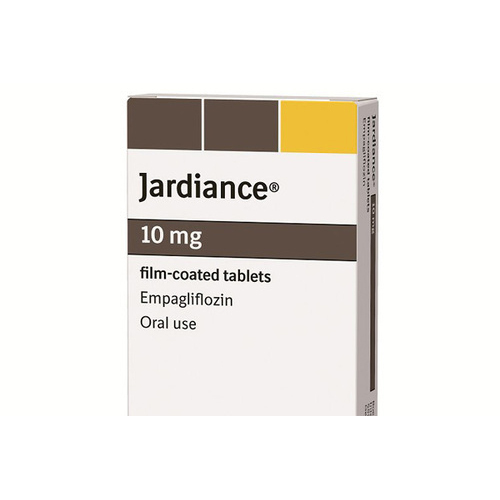
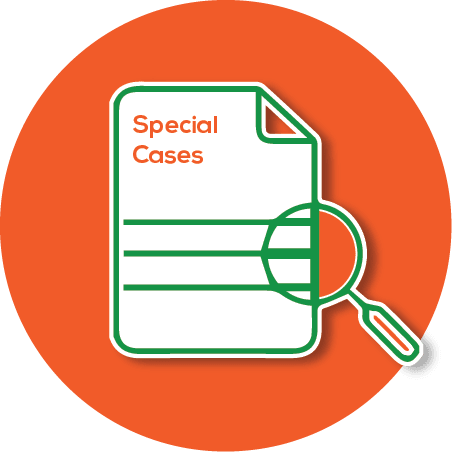
Can Jardiance be taken safely while breastfeeding?
Jardiance is not recommended while breastfeeding. We don't have much information about whether this medication passes into human breast milk. However, animal studies show it does appear in rat milk and can build up over time. This raises concerns because a baby's kidneys, which are organs that filter waste from the blood, continue developing during the first two years of life. The medication might affect this development. While we don't have specific reports of harm to breastfed babies from Jardiance, we can't rule out potential risks to their developing kidneys. We also don't know how this medication might affect your milk production. If you're taking Jardiance and want to breastfeed, talk with your doctor about safer medication options that would allow you to nurse your baby safely.

Can Jardiance be taken safely while pregnant?
Jardiance isn't recommended during pregnancy, especially in the middle and final months. Animal studies show this medication can affect kidney development in unborn babies. These effects included changes to kidney structure that were reversible. We don't have much information about Jardiance use in pregnant women. However, uncontrolled diabetes during pregnancy can cause serious problems for both mother and baby. These problems include diabetic ketoacidosis, which is a dangerous buildup of acids in your blood, and preeclampsia, which is high blood pressure during pregnancy. Babies may face birth defects or be born too early. If you're pregnant or planning to become pregnant, talk with your doctor about the safest way to manage your blood sugar during this important time. Your doctor can help create a pregnancy-specific treatment plan that protects both you and your baby.

Can I take Jardiance with other prescription drugs?
Jardiance can interact with diuretics, increasing the risk of dehydration and low blood pressure. When combined with insulin or other diabetes medications, it may cause hypoglycemia. Blood pressure medications may also lower blood pressure further. Always consult your doctor before taking Jardiance with other medications.

Does Jardiance affect appetite?
Jardiance doesn't typically affect your appetite. Most people taking this medication don't notice changes in how hungry they feel or how much they want to eat. This medicine works by helping your body remove sugar through urine, which can lead to some weight loss, but it doesn't directly impact your desire for food. If you notice any unexpected changes in your appetite after starting Jardiance, talk with your doctor about these changes. For mild appetite changes, try maintaining regular meal times and eating a balanced diet while taking your medication. Your doctor can help determine if any appetite changes you experience are related to Jardiance or if there might be another cause.

Does Jardiance affect mood?
Jardiance doesn't typically cause mental health effects. Most people take this medication without experiencing mood changes, anxiety, or feelings of agitation. Mental health side effects aren't listed among the known reactions to Jardiance. If you notice changes in your mood or mental well-being after starting this medication, talk with your doctor. These symptoms might be related to something else, like stress or another health condition, rather than the medication itself. Your doctor can help determine what's causing any mental health changes you experience and suggest appropriate support while continuing your treatment.

Does Jardiance affect sleep?
Jardiance doesn't typically cause sleep problems. Most people take this medication without experiencing any changes in their sleep patterns. Sleep disturbances aren't listed as a known side effect of Jardiance in the medication information. If you notice changes in how well you sleep after starting this medication, talk with your doctor. Sleep problems might be related to something else, like another medication you're taking or a different health condition. Your doctor can help figure out what's causing your sleep issues and suggest ways to improve your rest while continuing your treatment.

Does Jardiance cause headaches?
Headaches are not a common side effect of Jardiance. Most people take this medication without experiencing any head pain. While Jardiance can cause other side effects like urinary tract infections, which are infections in the system that removes urine from your body, headaches aren't typically linked to this medication. If you do get mild headaches while taking Jardiance, staying well-hydrated and resting may help. You can also take over-the-counter pain relievers after checking with your doctor. For severe or persistent headaches that develop after starting this medication, talk with your healthcare provider. Your doctor can help determine if your headaches might be related to Jardiance or if they have another cause that needs attention.

Does Jardiance cause stomach upset?
Jardiance rarely causes stomach problems. Fewer than 5% of people experience nausea while taking this medication. Vomiting, diarrhea, and stomach pain aren't commonly reported side effects of Jardiance. If you do feel mildly nauseated, this feeling may go away on its own. Taking the medication with food might help reduce this discomfort. Most people take Jardiance without having any stomach upset. However, if you develop severe or persistent nausea or any other concerning stomach issues, talk with your doctor. Always let your healthcare provider know about any new or worsening symptoms you experience while taking this medication. Your doctor can help determine if these symptoms are related to Jardiance or if they might be caused by something else.

Does Jardiance cause weight gain?
Jardiance typically causes mild to moderate weight loss. Most people taking this medication lose about 4-7 pounds compared to those not taking it. This weight loss happens because Jardiance makes your body remove sugar through urine, which means fewer calories are absorbed. For many people with type 2 diabetes who are overweight, this weight reduction can actually be helpful for their overall health. The weight loss usually continues as long as you take the medication. If you lose much more weight than expected or lose weight very quickly while taking Jardiance, talk with your doctor about these changes.

Does Jardiance have adverse effects?
Jardiance can cause unwanted reactions, though most people tolerate it well. Urinary tract infections, which are infections in the system that removes urine from your body, affect up to 9% of people taking this medication. Genital yeast infections are common, especially in women. These infections cause itching and unusual discharge. The medication increases urination and can lead to dehydration, which means your body doesn't have enough fluids. This might make you feel dizzy. A rare but serious effect is ketoacidosis, which is a dangerous buildup of acid in your blood. This requires immediate medical attention. Very rarely, people develop severe allergic reactions, kidney problems, or Fournier's gangrene, which is a serious infection of the genital area. Always tell your doctor about any new or worsening symptoms while taking Jardiance.

Does Jardiance have any safety warnings?
Jardiance has important safety warnings you should know about. This medication can increase your risk of diabetic ketoacidosis, which is a dangerous buildup of acids in your blood. This can happen even when your blood sugar is normal, especially if you miss insulin doses or get sick. If you experience nausea, vomiting, stomach pain, or breathing problems, get emergency help. Jardiance can cause dehydration, which means your body doesn't have enough fluids. This may lead to low blood pressure or kidney problems. Drink plenty of water while taking this medicine. Serious urinary tract infections, which are infections in the system that removes urine from your body, can occur. Watch for painful urination, fever, or back pain. Although rare, this medication can cause necrotizing fasciitis, which is a serious bacterial infection in the genital area requiring immediate medical attention. Genital yeast infections are common with Jardiance. Regular foot care is important as this medicine may increase amputation risk in some patients. Stop taking the medicine and seek help if you develop signs of an allergic reaction.

Does Jardiance interfere with sexual function?
Jardiance doesn't typically cause sexual side effects like erectile problems or reduced sexual desire. Most people take this medication without noticing changes in their sexual function. However, Jardiance can sometimes cause genital yeast infections, which might make sexual activity uncomfortable. These infections, which cause itching and irritation in the genital area, are usually mild and can be treated with antifungal medications. If you experience any persistent discomfort in your genital area or notice changes in your sexual function while taking Jardiance, talk with your doctor. Your doctor can help determine if your symptoms are related to the medication and recommend appropriate treatment to address any issues while continuing your diabetes care.

Does Jardiance limit driving?
Jardiance might affect your ability to drive safely in some cases. This medication can sometimes cause dizziness or light-headedness, especially when you stand up quickly. These feelings happen because Jardiance can cause dehydration, which means your body doesn't have enough fluids, or low blood pressure. If you feel dizzy or faint after taking Jardiance, avoid driving until these symptoms go away. When you first start this medication, pay attention to how your body responds before getting behind the wheel. Even if you feel fine at first, continue to monitor yourself for any new symptoms that could affect your driving. Talk with your doctor about any concerns you have about driving while taking this medication, especially if you notice any unusual symptoms.

Does Jardiance make it hard to think or concentrate?
Jardiance doesn't typically cause thinking problems or concentration difficulties. Most people take this medication without experiencing any changes in their mental focus or memory. Cognitive issues like confusion or trouble concentrating aren't listed as known side effects of Jardiance. If you notice problems with your thinking after starting this medication, talk with your doctor. These symptoms might be related to something else, such as low blood sugar, which is when your blood glucose drops too low, or another health condition. Your doctor can help determine what's causing these issues and suggest solutions while keeping your treatment plan on track. Don't stop taking Jardiance without talking to your doctor first.

Does Jardiance make people tired or drowsy?
Sleepiness and drowsiness aren't common side effects of Jardiance. Most people take this medication without feeling unusually tired. If you notice you're feeling very sleepy or fatigued while taking Jardiance, talk with your doctor. Your tiredness might be caused by something else, like another medication you're taking, or an underlying health condition. Your doctor can help determine what's causing your symptoms and recommend appropriate adjustments to your treatment plan. Remember that proper rest, regular physical activity, and a balanced diet can help maintain your energy levels while taking any medication.

For how long do I take Jardiance?
Jardiance is usually a long-term medication for managing ongoing health conditions like type 2 diabetes, heart failure, and chronic kidney disease, which is damage to organs that filter waste from your blood. For diabetes management, you'll typically take Jardiance every day as a lifelong treatment unless your doctor suggests otherwise. The same applies when it's prescribed for heart failure, which is when your heart can't pump blood effectively, or for kidney disease. Stopping this medication without medical advice could cause your conditions to worsen. How long you'll need this medication depends on your body's response, any side effects you experience, and changes in your overall health. Always talk with your doctor before changing or stopping your Jardiance treatment.

How does Jardiance work?
Jardiance belongs to a medication group called SGLT2 inhibitors, which work in your kidneys to lower blood sugar. Normally, your kidneys filter sugar from your blood but then reabsorb it back into your body. Jardiance blocks this reabsorption process. Think of it like changing the settings on a water filter. The medication adjusts your kidney's "filter settings" so excess sugar gets flushed out in your urine instead of being recycled into your bloodstream. This medicine also reduces sodium reabsorption, which helps improve heart health by lowering pressure in your blood vessels. These effects make Jardiance helpful for people with type 2 diabetes, heart failure, which is when your heart can't pump blood effectively, and chronic kidney disease, which is damage to organs that filter waste from your blood.

How do I dispose of Jardiance?
If you can, bring unused medicines to a drug take-back program or collection site at a pharmacy or hospital. They will dispose of this medicine properly so it doesn't harm people or the environment. If you can't find a take-back program, you can throw most medicines in the trash at home. But first, take them out of their original containers, mix them with something undesirable like used coffee grounds, seal the mixture in a plastic bag, and throw it away.

How do I know if Jardiance is working?
Jardiance treats type 2 diabetes, chronic kidney disease, which is damage to organs that filter waste from your blood, and heart failure, which is when your heart can't pump blood effectively. You'll know if Jardiance is working for diabetes when your HbA1c blood test shows better blood sugar levels. You might also notice less thirst and fewer bathroom trips. For heart failure, success signs include staying out of the hospital and having more energy for daily activities. If you're taking it for kidney disease, your doctor will check your kidney function through blood tests called eGFR and urine tests that measure protein. Regular check-ups with your doctor are important to see if the medication is working properly for your condition. Your doctor may adjust your treatment based on these test results and how you're feeling.

How do I take Jardiance?
Jardiance is a once-daily pill you should take each morning, with or without food. Jardiance can be crushed or mixed with water or food. If you miss a dose, take it when you remember unless it's almost time for your next dose. Then just skip the missed dose and continue your normal schedule. Never take two doses at once. While taking Jardiance, you don't need to avoid specific foods, but drinking enough water is important to prevent dehydration, which means your body doesn't have enough fluids. Try to avoid alcohol while on this medication. Alcohol can increase your risk of ketoacidosis, which is a serious condition where harmful acid levels build up in your blood, and can worsen dehydration. Always follow your doctor's specific advice about diet and fluid intake while taking this medication.

How long does it take for Jardiance to start working?
Jardiance begins working in your body shortly after you take it, reaching its highest levels in your blood about 1.5 hours later. The medication immediately starts helping your body remove more sugar through urine. However, you may not notice all the benefits right away. For type 2 diabetes, you might see some improvement in blood sugar levels within days, but more significant changes typically take several weeks. If you're taking Jardiance for heart failure, which is when your heart can't pump blood effectively, or for chronic kidney disease, which is damage to organs that filter waste from your blood, the full benefits may take months to appear. How quickly the medication works can depend on your kidney function, age, and overall health. Take it exactly as prescribed for the best results.

How should I store Jardiance?
Keep Jardiance tablets at room temperature between 68°F to 77°F, though brief exposure to temperatures between 59°F and 86°F is acceptable. Store the medication in a tightly closed container to protect it from moisture and light that could damage it. Don't keep your medicine in humid places like bathrooms, where moisture in the air could affect how well the medication works. If your pills came in packaging that isn't child-resistant, transfer them to a container that children can't easily open. Always store Jardiance out of children's reach to prevent accidental swallowing. Remember to check the expiration date regularly and properly dispose of any unused or expired medication.

Is Jardiance addictive?
Jardiance is not addictive or habit-forming. This medication doesn't cause dependency or withdrawal symptoms when you stop taking it. Jardiance works by affecting your kidneys to help remove sugar through urine. This mechanism doesn't affect brain chemistry in ways that could lead to addiction. You won't experience cravings for this medication or feel compelled to take more than prescribed. Unlike some medications that can cause psychological or physical dependence, Jardiance doesn't create these effects. If you have concerns about medication dependence, you can feel confident that Jardiance doesn't carry this risk while managing your health condition.

Is Jardiance effective?
Jardiance treats type 2 diabetes, chronic kidney disease, which is damage to organs that filter waste from your blood, and heart failure, which is when your heart can't pump blood effectively. This medication works by blocking a kidney protein called SGLT2. This blocking action causes your body to remove more sugar through urine, which lowers blood sugar levels. Clinical studies show Jardiance significantly improves blood sugar control in diabetes patients, lowering HbA1c levels, body weight, and blood pressure. For heart failure patients, the medication reduced the risk of hospitalization and death from heart problems by 25% compared to placebo. In people with chronic kidney disease, Jardiance lowered the risk of worsening kidney function or death from heart problems by 28%. These results show Jardiance effectively manages blood sugar, improves heart health, and helps preserve kidney function.

Is Jardiance safe for the elderly?
Elderly patients using Jardiance may have an increased risk of dehydration and urinary tract infections. It's important for them to stay hydrated and monitor for signs of infection. Regular check-ups with a doctor are recommended to ensure safe use.

Is it safe to drink alcohol while taking Jardiance?
It's best to avoid alcohol while taking Jardiance. Drinking alcohol while on this medication can increase your risk of diabetic ketoacidosis, which is a dangerous buildup of acids in your blood. This serious condition requires emergency medical treatment. Alcohol can also cause dehydration, which means your body doesn't have enough fluids. This may worsen side effects of Jardiance like dizziness or low blood pressure. If you do choose to drink occasionally, limit how much alcohol you consume and watch for warning signs like nausea, vomiting, stomach pain, or trouble breathing. These symptoms could indicate ketoacidosis and require immediate medical attention. Talk with your doctor about alcohol use while taking Jardiance to get personalized advice based on your specific health situation.

Is it safe to drink coffee or tea while taking Jardiance?
You can drink coffee and tea while taking Jardiance. Most people tolerate caffeinated beverages well with this medication, as there's no known interaction between caffeine and Jardiance. However, both Jardiance and caffeine can increase urination. Jardiance works by removing sugar through your urine, which naturally increases how often you urinate. Since caffeine is a mild diuretic, which means it makes you urinate more, drinking too many caffeinated beverages might increase your risk of dehydration, which is when your body doesn't have enough fluids. Try to enjoy caffeinated drinks in moderation and make sure you drink plenty of water throughout the day. If you feel dizzy or lightheaded, these could be signs of dehydration, so talk with your doctor.

Is it safe to exercise while taking Jardiance?
You can exercise while taking Jardiance, but keep a few things in mind. This medication increases urination and can cause dehydration, which means your body doesn't have enough fluids. This might make you feel dizzy or lightheaded during exercise, especially in hot weather. Jardiance can also lower your blood sugar, which is called hypoglycemia, particularly if you take insulin or certain other diabetes medications. Low blood sugar might make you feel weak during workouts. To exercise safely, drink plenty of water before, during, and after physical activity. Watch for signs of dizziness, unusual fatigue, or low blood sugar. If you notice these symptoms, slow down or stop exercising and rest. Most people can maintain their regular exercise routine while taking Jardiance, but check with your doctor if you have concerns about your specific situation.

Is it safe to stop Jardiance?
Stopping Jardiance suddenly can cause serious problems for your health conditions. If you're taking it for type 2 diabetes, your blood sugar levels might rise quickly when you stop. For heart failure, which is when your heart can't pump blood effectively, or kidney disease, which is damage to organs that filter waste from your blood, stopping could make these conditions worse. A dangerous complication called diabetic ketoacidosis might occur if you suddenly stop taking Jardiance. This condition, which causes harmful acids to build up in your blood, can cause nausea, vomiting, stomach pain, and breathing problems. This risk continues for several days after stopping the medication. Always talk with your doctor before stopping Jardiance. They might suggest gradually reducing your dose or switching to a different medication to keep your condition under control. Your doctor will help you make any medication changes safely to protect your health.

What are Jardiance possible harms and risks?
The most common side effects of Jardiance include urinary tract infections (UTIs), increased urination, and thirst. More significant adverse effects can include kidney problems, low blood pressure (hypotension), diabetic ketoacidosis (DKA), and an increased risk of genital infections (especially in women). Rare but serious effects include acute kidney injury and dehydration. Always report any unusual symptoms to your healthcare provider.

What are the most common side effects of Jardiance?
Side effects are unwanted reactions that can happen when taking a medication. With Jardiance, these effects vary from person to person. The most common side effect is urinary tract infections, which affect about 8-9% of people taking this medication. Women may experience genital yeast infections, which occur in about 2-5% of female patients. Men can also get genital yeast infections, but this happens less frequently. Some people notice they urinate more often when taking Jardiance, which happens in about 1-3% of patients. Upper respiratory infections, which affect your nose, throat, and airways, occur in about 4% of people taking this medication. If you notice new symptoms after starting Jardiance, they might be temporary or unrelated to the medication. Talk with your doctor before stopping any medication.

What disease or symptom is Jardiance used for?
Jardiance treats several important health conditions. For type 2 diabetes, it helps lower blood sugar in adults and children 10 and older when used with diet and exercise. The medication works by helping your body remove excess sugar through urine. For people with heart failure, which is when your heart can't pump blood effectively, Jardiance reduces the risk of dying from heart problems and needing hospital care. This medication also helps adults with chronic kidney disease, which is damage to organs that filter waste from your blood. It slows kidney damage progression and lowers the risk of developing end-stage kidney disease. Additionally, Jardiance decreases the risk of death from heart problems in adults who have both type 2 diabetes and cardiovascular disease, which affects your heart and blood vessels.

What is Jardiance?
Jardiance is a medication for type 2 diabetes that helps control blood sugar when you also follow a healthy diet and exercise plan. This medication works by blocking a kidney protein called SGLT2, which causes your body to remove more sugar through urine. Beyond managing diabetes, Jardiance can reduce the risk of dying from heart disease in adults who have both type 2 diabetes and heart problems. It may also lower your chances of being hospitalized for heart failure, which is when your heart can't pump blood effectively. Additionally, Jardiance can slow the progression of kidney disease, which is damage to the organs that filter waste from your blood.

What is the usual dose of Jardiance?
Adults typically start Jardiance with a 10 mg pill once each morning, which you can take with or without food. Your doctor may increase your dose to 25 mg daily if you need better blood sugar control and handle the starting dose well. Children 10 years and older with type 2 diabetes also begin with 10 mg daily, which can be increased to 25 mg if needed. Elderly patients and those with kidney problems, which affect organs that filter waste from your blood, need careful monitoring when taking this medication. Always follow your doctor's specific dosing instructions for your personal health needs.

Who should avoid taking Jardiance?
Don't take Jardiance if you're allergic to it or its ingredients. Serious allergic reactions, which cause rash, hives, or swelling that makes breathing difficult, require immediate medical help. This medication isn't for people with type 1 diabetes because it increases the risk of diabetic ketoacidosis, which is a dangerous buildup of acid in your blood. Jardiance shouldn't be used by people with severe kidney problems, which affect organs that filter waste from your blood, as it won't work well and might worsen kidney function. Avoid this medication during pregnancy, especially in the later months, as it may harm your baby. Breastfeeding mothers shouldn't take it either, as it may pass into breast milk. Older adults have higher risks of dehydration, which means your body doesn't have enough fluids. Be careful when taking Jardiance with water pills, as this combination increases dehydration risk. Always consult your doctor about these concerns.
Available in 2 variations

strip of 10 tablets

strip of 10 tablets



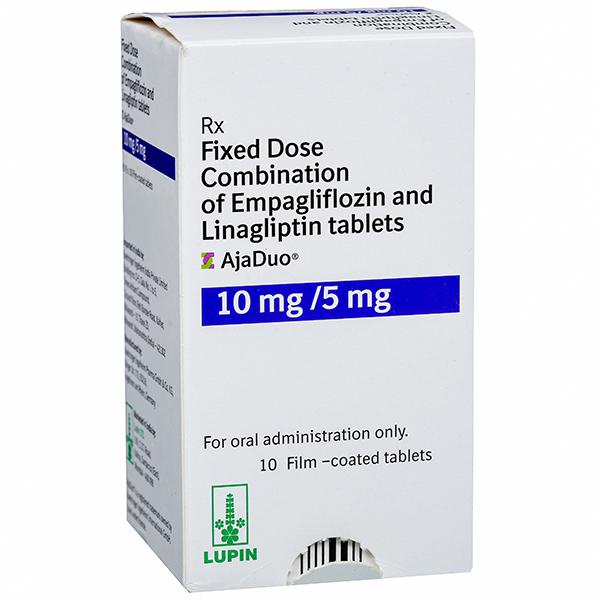

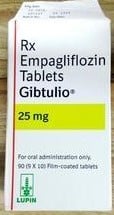
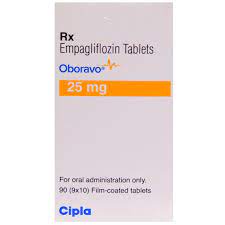



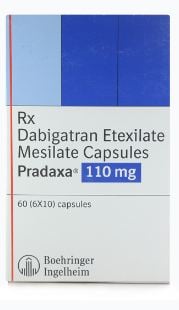






.svg)
